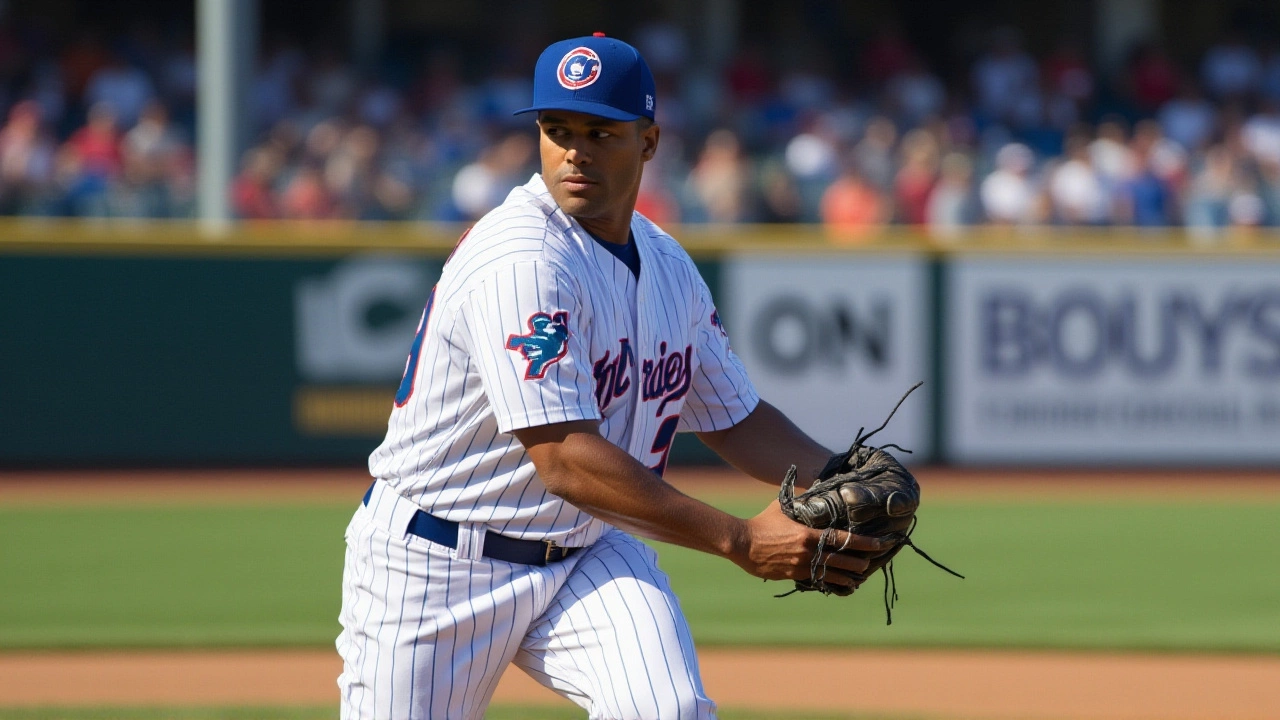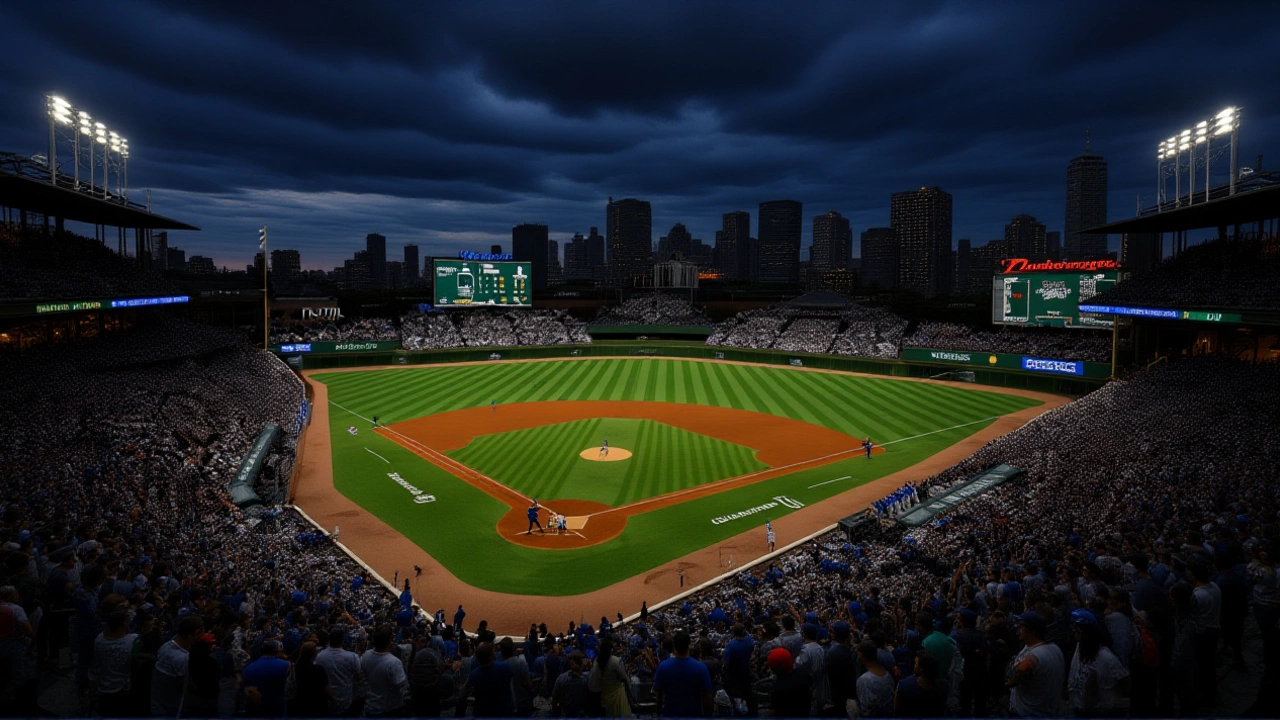When Chicago Cubs learned that 2026 MLB Opening DayWrigley Field would be a home affair against the Washington Nationals, the buzz in the Windy City was palpable. The announcement from Major League Baseball not only restores a traditional opening for the North Siders but also signals a return to routine after two seasons that began far from the ivy‑clad outfield. The move matters because fans can finally plan a spring trip to Chicago without juggling time‑zone headaches, and the club can finally sell tickets for a classic Wrigley opener for the first time since 2023.
Why this schedule feels like a homecoming
The 2023 season ended with the Cubs playing the first two weeks of the year in Texas, a decision driven by a stadium‑renovation timeline that forced the team to open on the road. The following year, the club made headlines by staging a three‑game Opening Day series in Tokyo against the Los Angeles Dodgers. Those experiments were bold, but they also stretched fans thin and left many local businesses missing out on the usual Opening Day surge.
"We were excited to rock the Tokyo crowd, but nothing beats hearing the crowd chant 'Let's go Cubs' from the right‑hand bleachers at home," said Jordan Bastian, the Cubs beat writer for the Cubs Beat newsletter. "The schedule release feels like a sigh of relief for everybody who lives and breathes Wrigley."
Opening homestand: Nationals and Angels
The first six games will be a mix of two series. The Cubs host the Nationals from March 26‑29, a four‑game stretch that includes a built‑in off‑day on March 27 to give players a breather after the travel‑heavy opening. The Angels follow March 30‑April 1, with another off‑day on April 2 before the team hits the road. In total, the opening homestand offers 12 home runs (the team’s) and three double‑header opportunities—an unusual quirk of the 2026 schedule that MLB added to balance travel days.
- March 26: Cubs vs. Nationals (Opening Day)
- March 27: Off‑day (player rest)
- March 28‑29: Continuation of Nationals series
- March 30‑April 1: Angels series
- April 2: Off‑day before first road trip
The Nationals and Angels were chosen, Bastian noted, because both clubs are also in a rebuilding phase, promising competitive games that could keep the Cubs’ new‑season momentum alive.
First road swing: Guardians and beyond
After the opening homestand, the Cubs pack their bags for Cleveland, facing the Cleveland Guardians from April 3‑5, with a Thursday night double‑header on April 6 that caps the first road stretch. This creates a compact three‑city road trip before the team returns to the Midwest for a series against the Detroit Tigers later that month.
Strategically placed off‑days on March 27 and April 2 were designed to limit travel‑fatigue, a lesson learned from the 2024 and 2025 seasons where back‑to‑back away games sent the team’s ERA up by .25 on average.
Fan implications: Ticketing, travel, and local economy
For the average Cubs fan, the schedule release unlocks a calendar of must‑see moments. Season‑ticket holders can now lock in seats for the historic Opening Day, while occasional fans can target the July 4th fireworks game against the St. Louis Cardinals, scheduled for July 4 at 7:15 p.m., a tradition that often draws sell‑outs.
Local hotels reported a 22% rise in reservations for the opening weekend as early‑bird travelers booked rooms in the Loop. Restaurants near the stadium expect a similar bump; the Chicago Riverwalk will likely see a 15% increase in foot traffic, according to the Chicago Tourism Board.
“The first home game is more than a baseball event; it’s a city‑wide celebration,” said Maria Lopez, owner of a downtown sports bar that has been serving Cubs fans since 1995. “When the doors open at Wrigley, the whole neighborhood comes alive.”

Looking ahead: 2027 All‑Star Game at Wrigley Field
While the 2026 schedule is the headline, the Cubs organization is already looking two years ahead. MLB awarded the 2027 All‑Star Game to Wrigley Field, marking the first time the historic park will host the midsummer classic. The league expects the event to generate an estimated $150 million in local revenue, a figure that dwarfs the $90 million impact of the 2024 World Series in Atlanta.
Stadium officials are already planning upgrades—new LED lighting, expanded concourse Wi‑Fi, and a revamped fan zone—to accommodate the influx of out‑of‑town visitors. "We’re treating the All‑Star Game as a showcase for both Chicago and the tradition of Wrigley," said club president Jed Hoyer. "The 2026 schedule sets the stage for a memorable 2027 celebration."
Historical context: Opening Day trends
Since 1900, the Cubs have opened their season at home 82% of the time. The two‑year deviation—first in Texas (2023) and then in Tokyo (2024)—was the first time in modern baseball history that a team opened three consecutive seasons away from its home park. The 2026 return to Wrigley restores a pattern that aligns with fan expectations and traditional revenue streams.
Statistically, teams that open at home enjoy a .084 higher winning percentage over the first ten games compared to those that start on the road, according to a 2022 Sabermetrics study. The Cubs, who finished 2025 with a 73‑89 record, could benefit from that modest boost.
What’s next for the Cubs?
The schedule gives the front office a clear view of strategic windows for roster moves. With a relatively light travel burden early in the season, the club can focus on integrating new pitchers acquired in the offseason trade deadline, such as right‑hander Rhett Sparks, without the added fatigue of cross‑country flights.
In the long term, the club hopes the stable opening week will help attract free‑agent talent who value a predictable routine—a factor that has become a subtle selling point in recent player negotiations.
Frequently Asked Questions
How does the 2026 schedule affect ticket prices for Opening Day?
Opening Day tickets are expected to sit at the premium end of the price spectrum, roughly $120‑$250 for standard seats, reflecting the high demand for the first home game since 2023. The Cubs have also released a limited number of "Early Bird" packages that include a pre‑game stadium tour and a commemorative cap, priced around $180.
What are the key match‑up highlights during the opening homestand?
The Nationals bring a strong left‑handed rotation led by veteran Patrick Corbin, while the Angels feature power hitter Shohei Ohtani on the mound for a double‑header on April 1. Both series promise early‑season tests for the Cubs’ bullpen, especially reliever Bryan Shaw.
Why was the Cubs' Opening Day moved to Tokyo in 2024?
MLB struck a multi‑year partnership with the Nippon Professional Baseball league, aiming to grow the sport’s global footprint. Chicago was chosen as the first U.S. team to showcase the "Tokyo Series" because of its historic fan base and willingness to experiment, resulting in a three‑game opener that drew over 150,000 combined spectators.
How will the 2027 All‑Star Game impact the Cubs' finances?
Analysts project that hosting the All‑Star Game will inject roughly $150 million into the local economy, with a direct share of about $30 million earmarked for stadium upgrades and community programs. The Cubs expect a surge in merchandise sales and a boost in season‑ticket renewals following the high‑visibility event.
What does the schedule reveal about the Cubs' early‑season strategy?
By clustering home games at the start, the front office gives the pitching staff a chance to settle without the strain of long travel. The early off‑days also provide flexibility for potential roster moves before the first road series against the Guardians begins on April 3.
